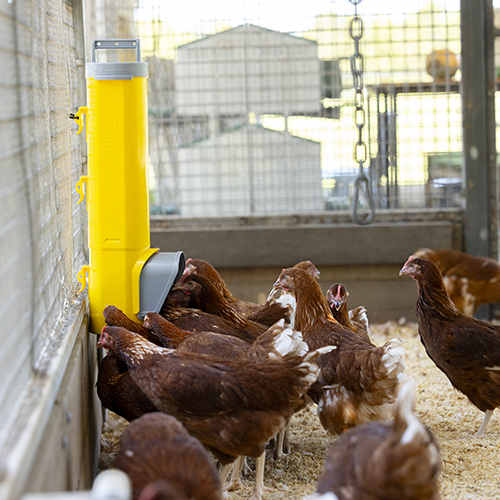
Last time, we looked at how to plan and build your lifestyle block chicken coop. Now you’ve built it, you’re ready to begin poultry raising for the best free-range eggs you’ll ever eat.
Recently, there has been a global shortage of eggs. Overseas, avian flu has seen the pre-emptive culling of birds to stop the spread, leading to shortages. Here, we have had recent law changes about welfare standards for chickens, which has reduced the number of chickens producing eggs for our market. So, eggs are in short supply, and prices have gone up. It’s a good time to start producing some yourself.
Chickens are intelligent birds with distinct personalities. They are very entertaining, especially when they chase each other when you toss a scrap of food into the coop. Your chickens can clean up garden beds like feathered rotary hoes, recycle your food waste, and their droppings are incredible fertiliser. And, of course, they lay eggs.
Keeping chickens won’t save you money on eggs. The advantage is a regular supply of eggs. If you can supplement the cost of feed with other food from your lifestyle block, you’ll come in roughly even on cost. Source your feed from farm supply shops, as it’s cheaper than buying it from the supermarket.
Next, you have the cost of the chickens themselves. You can get cheaper birds as ex-layers who will still produce eggs for a few years. Pullets and chicks will give you the longest return of eggs. Chicks take about sixteen weeks to mature into laying birds.
Also be aware that some hens don’t lay eggs, and even good layers will stop at the height of summer and the depths of winter. So you may need to buy eggs during these times. Commercial producers use climate control to keep their hens laying year-round. Keeping chickens for eggs on a lifestyle block is less predictable.
As above, eggs aren’t guaranteed. Chickens can also be messy and noisy. Generally, hens won’t make a lot of noise unless they’ve just laid an egg. Then you’ll hear all about it. If you keep a rooster, you’ll get used to the sound of dawn arriving. Keeping chooks and certain breeds of dog can also be a recipe for disaster. If you have a dog, find out if it’s a chicken-friendly dog or not before you get your hens.
Arguably, the biggest downside to keeping chickens is when you have to put them down. If you can’t keep roosters or when hens get sick, it’s necessary. No matter what you tell yourself about them not being pets, chickens are friendly, sociable and endearing.
Chickens are low maintenance, but they do come with some work. They will eat most of your food waste but not everything. And there are certain toxic foods you should never give to chickens, such as apple seeds, potato peelings and onions.
Generally speaking, if you have provided your chickens with a good coop, you’ll reduce the risks of potential health issues. But even healthy chickens can get mites or worms or become egg-bound. You’ll also get a variety of interesting eggs that will make you think either a quail or an ostrich has been visiting the coop, unlike the cleaned and sorted ones from the supermarket.
Depending on how many chickens you have, you’ll need to clean the coop. As mentioned before, chicken droppings make excellent fertiliser, so there’s a return on your efforts here. Sometimes, you may have to clean bum feathers, but chickens will look after themselves, especially if you have places where they can dust bathe.
Chickens also need a good supply of fresh, clean water for good health and access to food. They won’t overfeed themselves, so you can save yourself effort by using poultry feeders and poultry drinkers.
If you want more advice about poultry raising, come and see us at the National Field Days happening across the country. We’ll be there.




Bainbridge Vet New Zealand© 2024 | Site by MRD Web